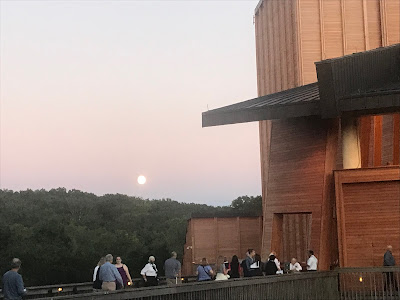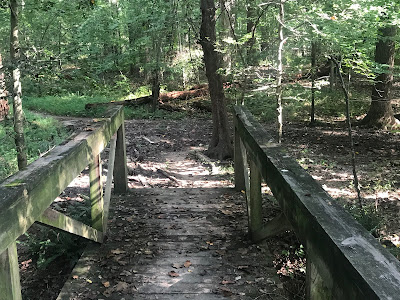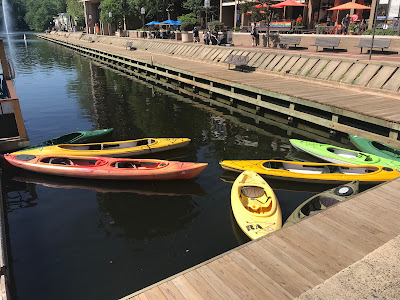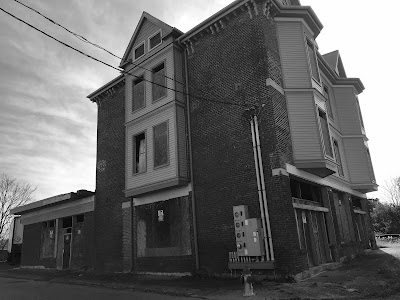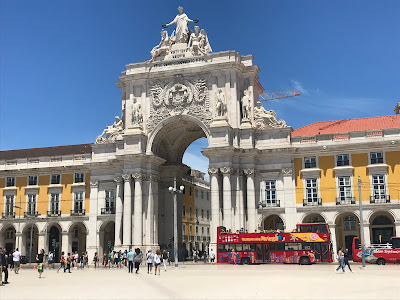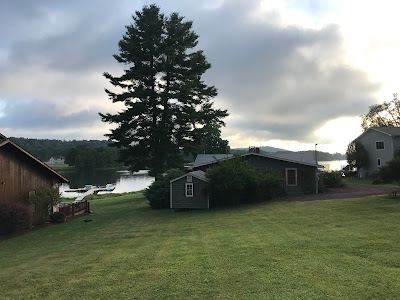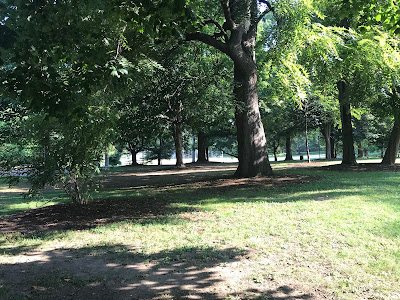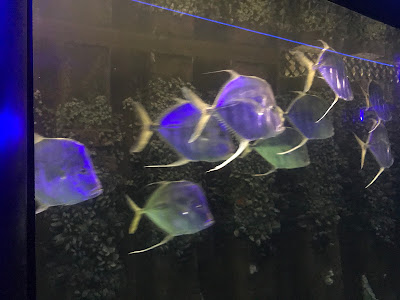Moon Over Wolf Trap
A last gasp of summer, an outdoor concert at Wolf Trap, where cellist Yo-Yo Ma and clarinetist Paquito D’Rivera played together like … beans and rice, which they explained briefly before they played are their nicknames for each other. These names also showed up as titles for movements in the piece they performed, which D’Rivera composed.
At Wolf Trap it’s never just about the music but the experience: picnicking on the lawn, waiting for the performance and the darkness.
Last night a pale waxing moon appeared just as the hall was filling up, and as the players tuned (so different to see the National Symphony in its shirtsleeves), the moon rose and brightened. By the time we left, sated with the music and the evening, it was high in the sky, lighting us home.
